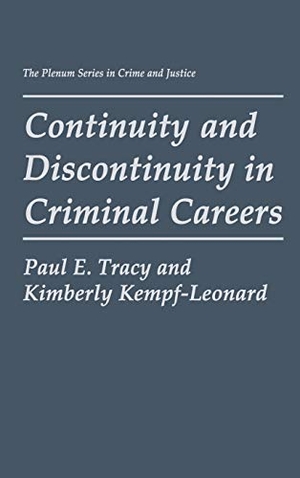Für statistische Zwecke und um bestmögliche Funktionalität zu bieten, speichert diese Website Cookies auf Ihrem Gerät. Das Speichern von Cookies kann in den Browser-Einstellungen deaktiviert werden. Wenn Sie die Website weiter nutzen, stimmen Sie der Verwendung von Cookies zu.
Cookie akzeptieren
Kimberly Kempf-Leonard / Paul E. Tracy
Continuity and Discontinuity in Criminal Careers
- Springer US
- 1996
- Gebunden
- 280 Seiten
- ISBN 9780306453472
It takes courage to do research on crime and delinquency. Such research is typically conducted in an atmosphere of concern about the problem it addresses and is typically justified as an attempt to discover new facts or to evaluate innovative programs or policies. When, as must often be the case, no new facts are forthcoming or innovative programs turn out not to work, hopes are dashed and time and money are felt to have been wasted. Because they take more time, longitudinal studies require even greater amounts of courage. If the potential for discovery is enhanced, so is the risk of wasted effort. Long-term longitudinal studies
Mehr
Weniger
zzgl. Versand
in Kürze